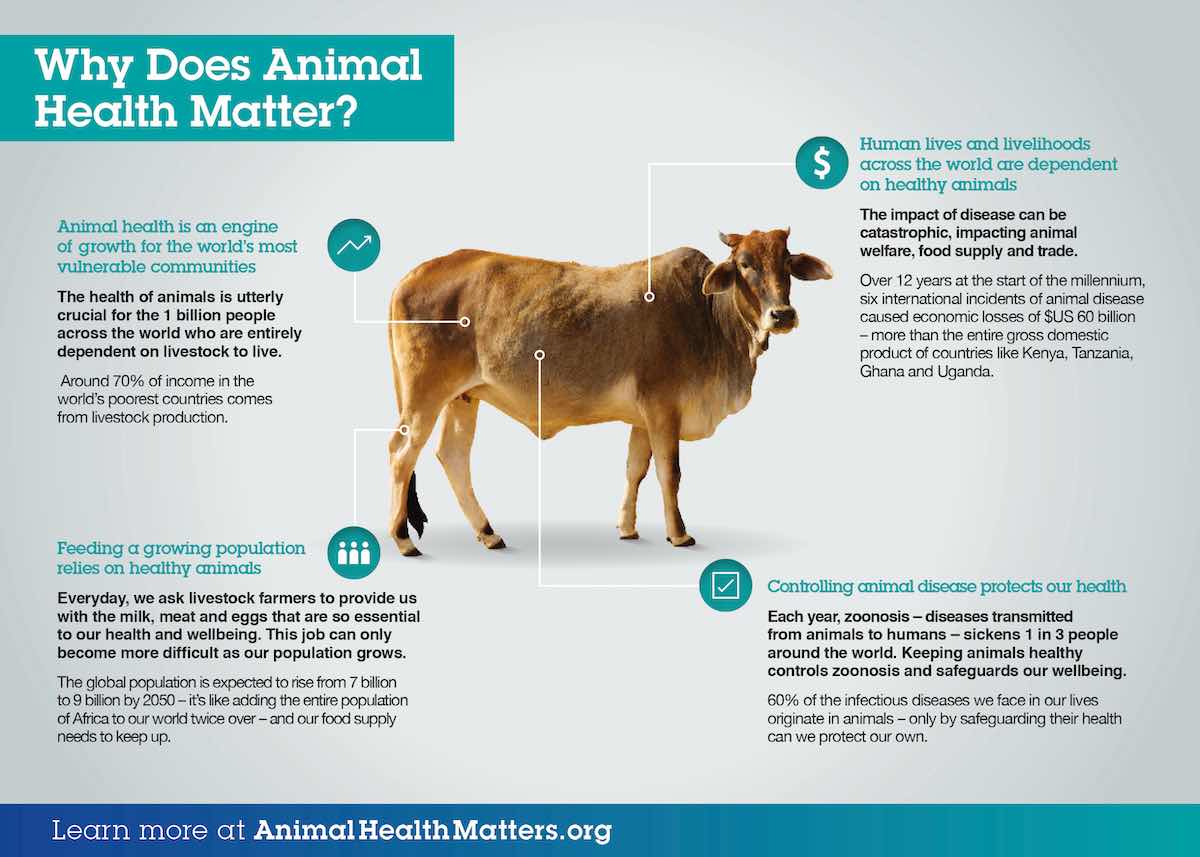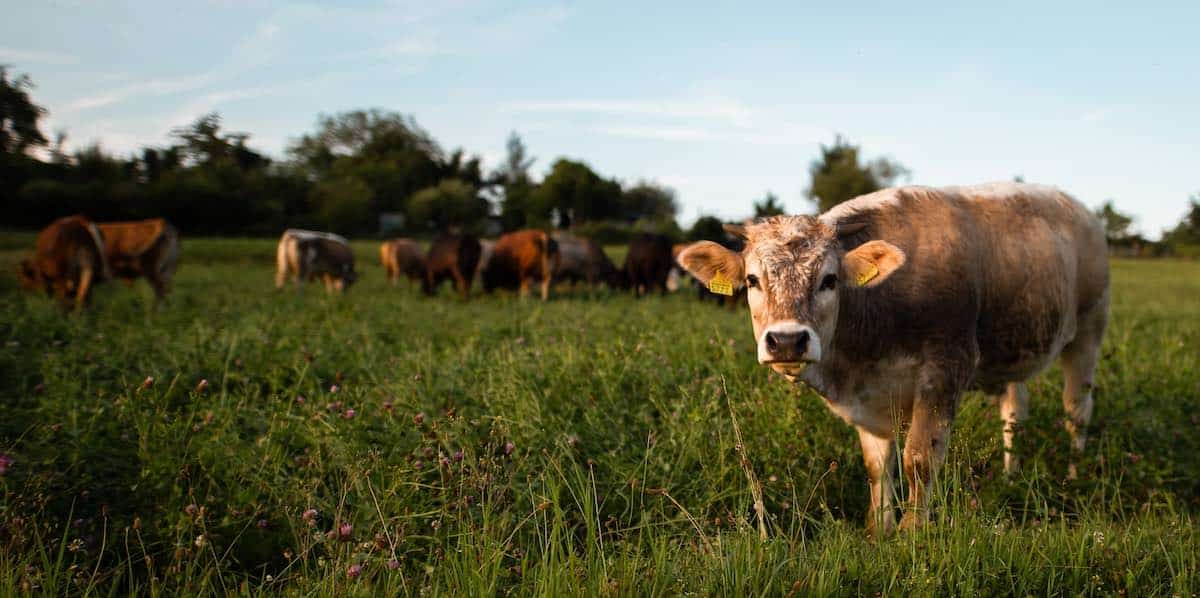Farm or agricultural animals are reliable when it comes to putting food on the table for farmers and consumers alike.
However, livestock producers can only reap these benefits when the animals are alert, aware, and virus-free. In short, farm animals should be healthy animals.
To achieve this state, a farmer must ensure proper animal maintenance and care. It’s also important to know common diseases animals can get on farms, as these allow farmers to understand disease control and curing their animals.
This article is equipped with everything you need to know about animals on farms and the diseases that commonly affect them.
We’ll also look at disease prevention, cures, and outbreak control.
Farm Animals: Diseases and common illnesses
Livestock diseases occur when animals’ standard bodily functions alter and cause adverse effects, such as infections, damaging their physical well-being.
To keep you informed, here are the most common animal diseases you should be cautious of.
Bovine Viral Diarrhea (BVD)
Bovine Viral Diarrhea (Bovine Viral Diarrhoea) or BVD is a common yet costly disease in cattle that creates the following clinical signs or symptoms:
- Acute or severe sickness
- Bloody diarrhea
- High fever
- Mouth ulcer
- Respiratory diseases (i.e., pneumonia)
Aside from that, it is viral in nature, which means it can be passed to the entire herd from various interactions, such as:
- Exposure to a persistently infected animal (in-born) or a recently-infected one
- Exposure to contaminated feed containers and other equipment (e.g., water buckets, feeders, bunks, nose leads, clothing, trucks, and IV equipment)
Foot and Mouth Disease
Another common, contagious, and severe disease is foot and mouth illness (FMD). This disease occurs primarily through airborne transmission, making it highly contagious.
There are several variants of FMD, which have differing levels of severity, with some requiring specialized vaccines to prevent disease and disaster from spreading.
It can generally be observed through the following symptoms:
- Fever
- Shivering
- Reduced milk production
- Blister on lips, mouth, teats, and hooves
- Sore mouth
When it comes to FMD, the types of farm animals that can receive and transmit it are the following:
- Cloven-hoofed ruminants
- Cattle
- Swine
- Sheep
- Goat
Avian Influenza Viruses
Avian flu, most commonly known as bird flu, affects different kinds of animals, such as:
- Chickens
- Ducks
- Geese
- Pheasants
- Pigs
- Turkeys
- Quail
Aside from these, most animals that eat the meat of poultry animals can also get this type of disease, such as cats and dogs.
The Avian flu can produce symptoms that can be fatal to poultry animals, especially chickens, if the strain is highly pathogenic HPAI. The symptoms include:
- Gasping
- Extreme diarrhea
- Swelling around the head, neck, and eyes
- Purple discoloration on heads and legs
Johne’s Disease
Johne’s disease is named after the German pathologist Heinrich A. Johne, who discovered it in 1895 when it manifested in a Guernsey cow in Germany. The cow died having the following known symptoms:
- Insufficient production of milk
- Body weight loss
- Thicker intestine
- Enlarged lymph nodes
To date, this disease has been extensively researched, with the following additional observed symptoms:
- Diarrhea
- Swelling under the jaw
The tricky part is that this infectious disease only presents signs after at least two years from the moment the infection occurs.
African Swine Fever
ASF is a bacterial disease caused by the ASF virus, and the severely affected animals are swine or pigs. You will be aware if pigs, both wild and domestic, have been afflicted by ASF through the following indications:
- Coughing
- Decrease in appetite
- Diarrhea
- Difficulty breathing
- High fever
- Skin infections and skin lesions
- Vomiting
As of now, there are no effective vaccination programs that can prevent ASF from spreading.
With this, farmers can only employ preventive measures to ensure that pigs will be strong enough to battle ASF, and these are:
- Early treatment and detection
- Surveillance
- Epidemiological investigation
- Tracing
- Biosecurity measures
- Quarantine
- Animal movement control

Causes of infectious diseases
Clinical signs vary from one animal to another, but most are closely related because of the nature of the clinical disease and certain predisposing factors.
In a nutshell, here are the reasons why farm animal diseases exist:
- Bacteria
- Biting insects
- Chemical poisons
- Carcasses of dead animals
- Fungi
- Nutritional deficiencies
- Parasites (causes secondary infections)
- Protozoa
- Rickettsia
- Unknown/untraceable causes
- Viruses
- Worms
Curing infected animals
When domestic animals, food-producing animals, and other animals receive infectious diseases, the following courses of action can be done to cure or help animals be at ease with non-curable diseases:
BVD
- Antibiotic therapy (for pneumonia)
- Increasing feed amount
- Increasing water intake
FMD
- Supportive care
- Using mild disinfectants
- Antibiotics
Avian Flu
- Antimicrobials
- Rest and supportive care
- Antiviral drugs
Johne’s
- Antibiotics for temporary relief
Disease control
The diseases can be controlled before and even after they’ve struck the animals on the farm. To do that, here are some of the disease control methods employed in the livestock industry:
- Coordinating with the local animal health office
- Surveillance, treatment, and investigation during the early stages
- Vaccination program (e.g., on very young calves)
- Tracing and segregating many animals that are sick from the healthy ones (e.g., a sick calf)
Conclusion
Now that you know the common diseases that infect animals on the farm, along with the causes, courses of action, and disease control, you can better keep the animals on the farm in tip-top shape.
Just remember that the positive health of animals will also reflect in public health, livestock health, and the economy.
What are you waiting for? Check on your animals, and take care using appropriate precautionary and curing steps depending on the disease.
FAQs – Common Diseases of Farm Animals
It is essential to prevent animal illness because aside from safeguarding the animal’s health, it also protects your livelihood, the economy, and overall public health.
With sick, contagious animals on your farm, the economy, your finances, and even your health can be significantly affected as the disease can cull your livestock, resulting in poor growth and production.
An animal can transmit disease through the air, direct contact, ingestion, and indirect transfer in objects used by sick animals.
The most common diseases affecting farm animals include Bovine Respiratory Disease (BRD) which affects cattle and causes respiratory issues, Mastitis which is a bacterial infection in the mammary glands of dairy animals, and Foot-and-Mouth Disease (FMD), a highly contagious viral disease affecting cloven-hoofed animals like cattle, pigs, sheep, and goats.
To prevent the spread of diseases on your farm, maintain proper hygiene and sanitation by regularly cleaning and disinfecting equipment and facilities. Implement biosecurity measures such as restricting visitor access and isolating new or sick animals. Provide appropriate nutrition, vaccinations, and veterinary care to support animal health and immunity.
If you suspect a disease outbreak on your farm, immediately isolate the affected animals to prevent further spread.
Contact your local veterinarian or animal health professional for diagnosis and treatment recommendations, and follow their advice and any applicable regulations for reporting and managing the disease.

2 replies on “What Are the Common Diseases of Farm Animals?”
[…] example, some feed additives can help improve digestibility, promote healthy growth, and protect against disease, while others can help with overall nutrient […]
[…] you do not take care of your birds and keep your farm clean, all of your chickens can be wiped out by a single disease. Although unlikely, it can […]